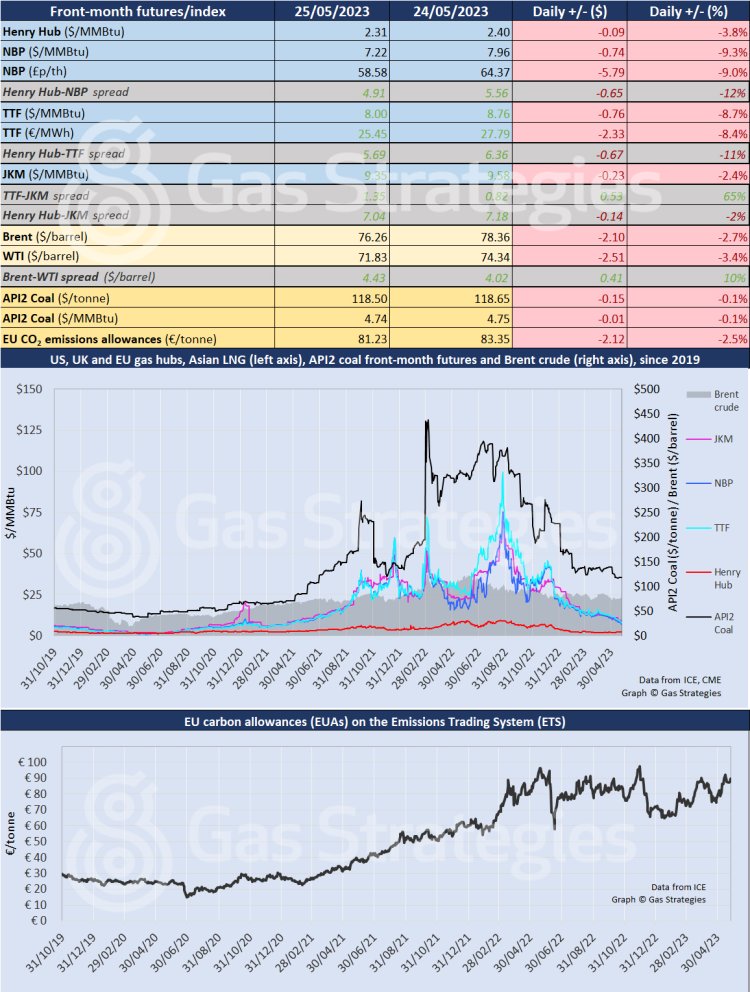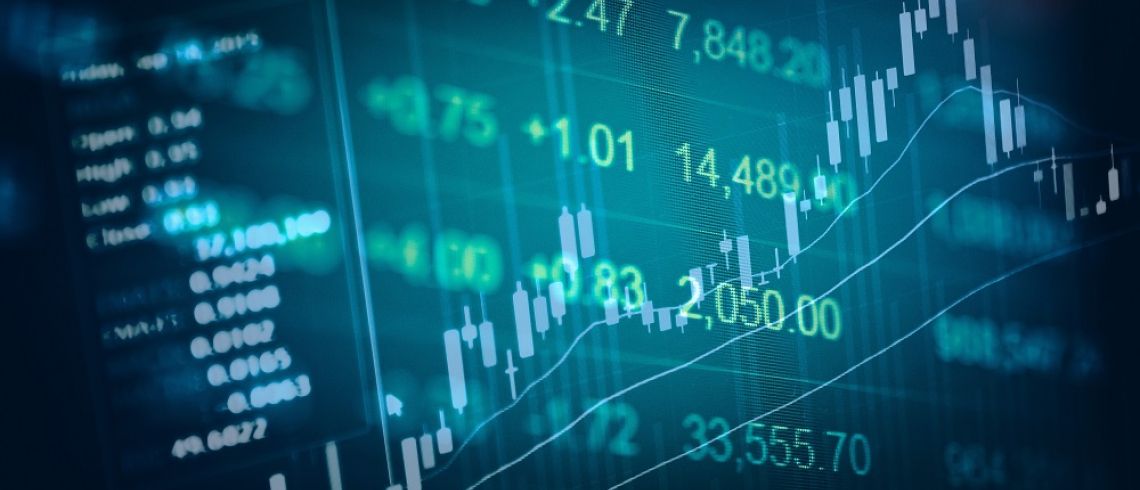Natural gas prices were in freefall on Thursday with European values dipping to their lowest levels in over two years.
Gas prices in Europe were down amid high filling indicators in storage facilities, record high inflows of LNG and warm weather.
TTF dropped 8.7% to USD 8.00/MMBtu and NBP plunged by a steeper 9.3% to USD 7.22/MMBtu – both to their lowest level since April 2019.
On Thursday, the European Commission announced that the EU is no longer dependent on Russian energy supplies, having been able to quickly find alternative exporters such as LNG, as well as reducing consumption and accelerating the clean energy roll-out.
However, analysts at ANZ Bank said in a research note that although they estimate that Europe will get through another winter without any significant disruptions to energy supply, the situation should be viewed with caution.
“We estimate Germany, and the broader region, could experience gas shortages next winter if demand is not reduced by another 15%,” ANZ said.
Energi Danmark said in its latest morning report:
“At some point, we will reach a level so low that it will cause LNG suppliers to send their gas to other places instead of Europe, which will lead to the end of the price falls, but when we reach that point is still difficult to say. Until then, we expect the downtrend to continue,”
Meanwhile, JKM saw a 2.4% decline to USD 9.35/MMBtu. Reports suggest that developing countries from Asia to Latin America have been benefitting from the LNG price slump over the past few weeks, helping replace more polluting fuels while easing cost pressures on the economy.
Together with lower natural gas prices, coal has been seeing its lowest price levels in over two years, with the front-month API2 coal contract settling at USD 118.5/tonne. In addition, the 2024 contract dropped below USD 100/tonne for the first time in one and a half years, closing the day at USD 98.35/tonne.
“As long as gas continues the steady decline, coal will likely follow, as demand is weak and stock levels high across the continent,” Energi Danmark said.
In the US, Henry Hub’s front-month contract declined for the fourth time in a row, down 3.8% to USD 2.31/MMBtu.
This came after the EIA report indicated that working gas in storage increased by 96 Bcf in the week ending 19 May, compared to analyst consensus of over 100 Bcf. The injection was on par with the five-year average and has resulted in lowering of the front-month Henry Hub contract.
Crude settled lower on Thursday as Russian Deputy Prime Minister Alexander Novak played down the prospect of further OPEC+ production cuts at its meeting next week. Brent settled 2.7% lower at USD 76.26/barrel, and WTI fell by 3.4% to USD 71.83/MMBtu.
Front-month futures and indexes at last close with day-on-day changes (click to enlarge):  Time references based on London GMT. Brent, WTI, NBP, TTF and EU CO2 data from ICE. Henry Hub, JKM and API2 data from CME. Prices in USD/MMBtu based on exchange rates at last market close. All monetary values rounded to nearest whole cent/penny. Text and graphic copyright © Gas Strategies, all rights.
Time references based on London GMT. Brent, WTI, NBP, TTF and EU CO2 data from ICE. Henry Hub, JKM and API2 data from CME. Prices in USD/MMBtu based on exchange rates at last market close. All monetary values rounded to nearest whole cent/penny. Text and graphic copyright © Gas Strategies, all rights.
Subscription Benefits
Our three titles – LNG Business Review, Gas Matters and Gas Matters Today – tackle the biggest questions on global developments and major industry trends through a mixture of news, profiles and analysis.
LNG Business Review
LNG Business Review seeks to discover new truths about today’s LNG industry. It strives to widen market players’ scope of reference by actively engaging with events, offering new perspectives while challenging existing ones, and never shying away from being a platform for debate.
Gas Matters
Gas Matters digs deep into the stories of today, keeping the challenges of tomorrow in its sights. Weekly features and interviews, informed by unrivalled in-house expertise, offer a fresh perspective on events as well as thoughtful, intelligent analysis that dares to challenge the status quo.
Gas Matters Today
Gas Matters Today cuts through the bluster of online news and views to offer trustworthy, informed perspectives on major events shaping the gas and LNG industries. This daily news service provides unparalleled insight by drawing on the collective knowledge of in-house reporters, specialist contributors and extensive archive to go beyond the headlines, making it essential reading for gas industry professionals.





